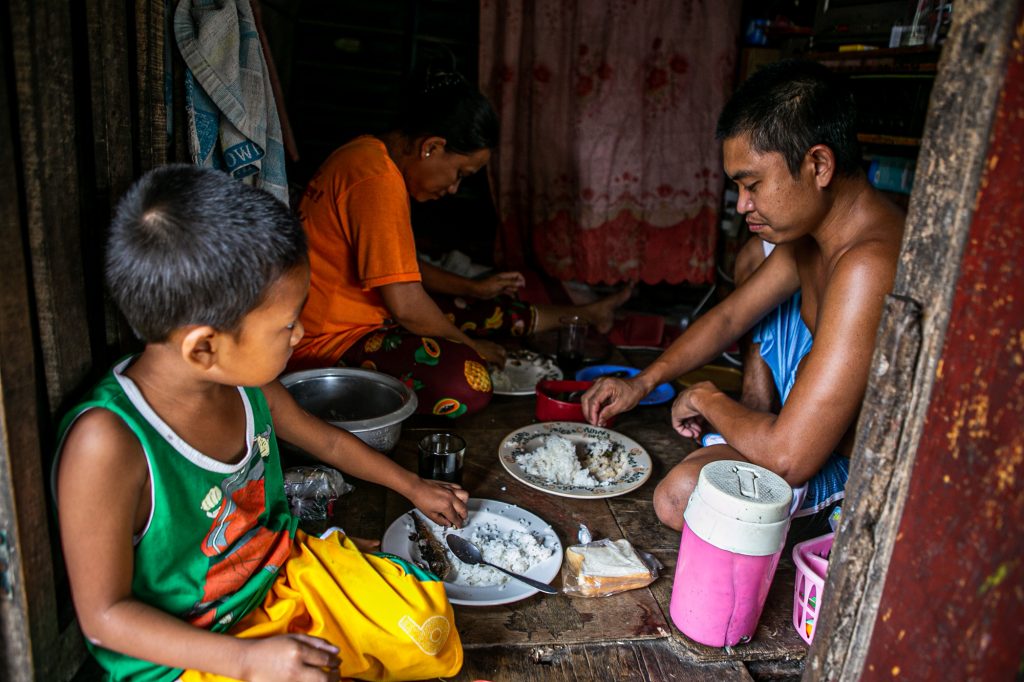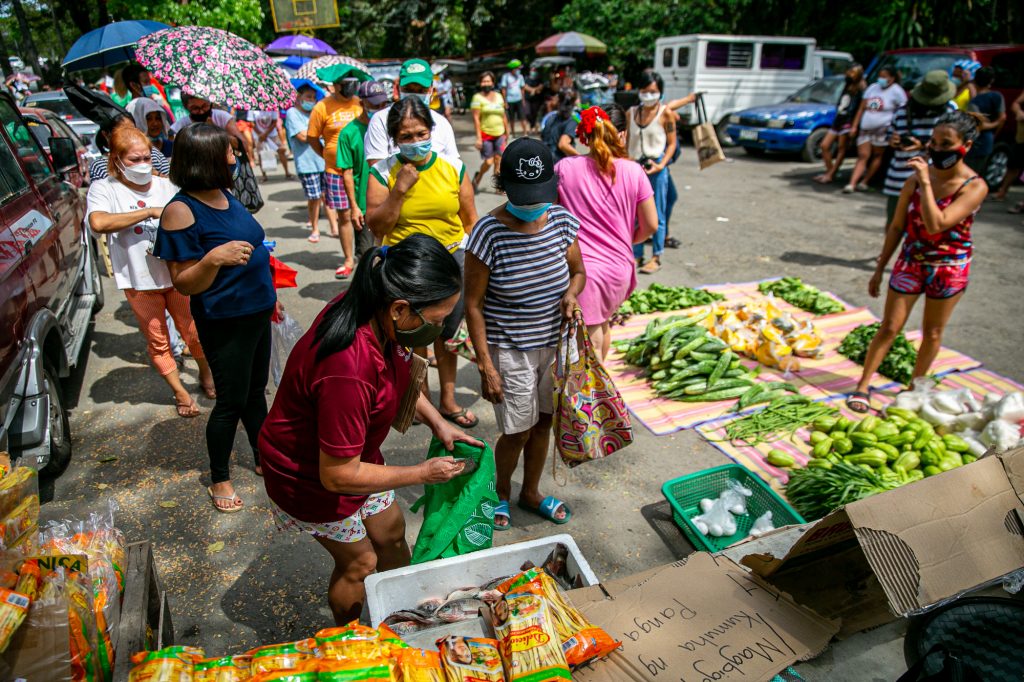Reflection for the 17th Sunday in Ordinary Time (Cycle B)
The Eucharist is the source and summit of the Christian life, the focal point of alleviating our earthly struggles through beseeching and thanking God for “giving us our daily bread.” But why is it we are persistently confronted with the reality of hunger in the world? Of poverty and the lack of sustainable development? Of a continent of people miserably surviving below humane living standards? Of inadequate access to quality healthcare and education?
Many would ask, “Why are we not receiving this ‘daily bread,’” and so what is there to thank for? Can the eucharistic image of a promised abundance still pose a serious message for the dearth of our times?
It is startling to behold that in the midst of the Church’s sacramental presence, we are still grappling with the paradox of our own corruption, a concupiscence to the allurements of social and political power which we can barely control. How often do we see the oppressed and the oppressor attending Mass together, as if one’s turmoil is not being caused by the other. The “have-nots” would fervently be praying for the “daily bread” yet to be received, faithfully trusting the Father and hoping for a better life; while the “haves” may be hypocritically grateful for having been “favored with so much more daily bread,” mistakenly believing in “God’s special love” for them.
But the Eucharist is not an inutile symbol of a forlorn ideal of equality, but rather a subtly hidden channel for God’s liberation to work through us. It is the primary means through which he shall touch anyone bold enough to respond to the mission of helping him achieve his kingdom on earth. And it is through the story of a common meal fulfilled, that he plans to save us from ourselves.
The story of the multiplication of loaves and fish is common to all the Gospel narratives, and thus widely believed by all the early Christian communities which the evangelists addressed, to be an authentic representation of the virtuous deeds of the divine Master which they firmly hold in fond memory. It is interesting to note that John situates this miracle when the “Jewish [unleavened bread] feast of Passover was near,” perhaps relating the meal that was about to take place to a forthcoming redemption.
It is therefore extremely difficult to dismiss the story as plainly mythical which is just as well, for its underlying lessons are disturbingly real. Not a few theologians have speculated that the miracle is the result not only of a compassionate concern of the Spirit of love for his troubled and anxious people, but of an even more miraculous realization of the human capacity for simple sharing: thousands can be fed if only each person will give from the excesses of his or her needs.
The miracle will always bear testimony to the Father who cannot be outdone in generosity, to the providence which was and will never be insufficient, to the amazing epiphany of a supernatural admonition that there is more than enough of his blessings for everybody. Why would there be so much left-overs? Aren’t surpluses silent reminders of the strange disparity between how much we really need, and how much we actually want?

Hunger and destitution among the “have-nots” arise only from the unfounded beliefs among the “haves” that scarcity is always imminent, and must be avoided at all times; that wealth and possessions are for reasons of security or power-positioning, not to be given away so easily; and that the poor should be blamed for their poverty. But how may we ask can the poor be blamed, if as John describes Philip’s observation that “Two hundred days’ wages worth of food would not be enough for each of them to have a little?” Does it not boggle the mind that in Jesus’ time, one could work for so long and still not have enough for just little food? The miracle will also bear testimony to an attainable justice and peace, to a kingdom of mutual responsibility that has yet to be achieved, not because of a God who relents to bestow, but because of a humanity who refuses to have faith.
The leaders of our country must fulfill what the Lord desires and commands for all: that everyone will have their equitable share of sustenance and grace, that everyone will have the opportunity to live and grow, and that no one will be in dire need. The Nazarene prophet frequently retreated to converse and to be strengthened by Abba, proclaiming to the marginalized, challenging the proud and dying for a mission founded on selfless actions to preserve a cosmic balance. For this, he became his Father’s eternal image. In the same way, our leaders must mirror the holiness and sacrifice of this equalizing Christ. In the end, they must account for their efforts – or their lack of efforts – to maintain a delicate social equilibrium, before Abba.
Brother Jess Matias is a professed brother of the Secular Franciscan Order. He serves as minister of the St. Pio of Pietrelcina Fraternity at St. Francis of Assisi Parish in Mandaluyong City, coordinator of the Padre Pio Prayer Groups of the Capuchins in the Philippines and prison counselor and catechist for the Bureau of Jail Management and Penology.
The views expressed in this article are the opinions of the author and do not necessarily reflect the editorial stance of LiCAS.news.







